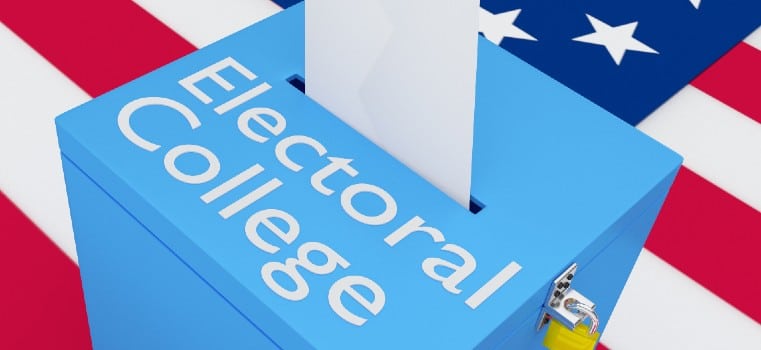L.D. 1384, a bill to adopt the National Popular Vote Interstate Compact, will be heard before the Veterans and Legal Affairs Committee this Tuesday, May 11, at 9:00 a.m. The National Popular Vote movement is intended to get rid of the Electoral College, which would be bad for Maine because of our low population numbers compared to other states. You can read additional information about L.D. 1384 below my signature.
Our form of government is a constitutional republic. The word “democracy” is not found in our Pledge of Allegiance or the U.S. Constitution. We elect people to make decisions in government for us. If we don’t approve of their vote, we can elect someone else in the next election.
The Founders were careful to guard against a direct democracy or the majority rule because it doesn’t protect the minority. nThe Electoral College is a safeguard against the tyranny of the majority. Learn more about the importance of the Electoral College here.
Take Action!
- Contact Karen Montell, the Veterans and Legal Affairs Committee clerk, and ask her to communicate to the members of the committee that you oppose L.D. 1384. If you are a member of Concerned Women for America (CWA) of Maine, let Karen know when you call.
- Optional: As a private citizen, not a member of CWA of Maine, you can submit written and/or oral testimony. Click here to register to give testimony.
- Forward this information to friends and family.
Please Pray: Dear Heavenly Father, thank You for the freedom and privilege to participate in our government as Maine citizens. We pray today for the Veterans and Legal Affairs Committee members that they will seek Your face and trust Your wisdom when voting on important bills. Father, we pray for the Church to rise up in our state and nation and protect this country You so graciously bestowed on us. In Jesus’ name. Amen
Thank you for your commitment to take action on this bill.
Penny Morrell
State Director
More on L.D. 1384:
L.D. 1384 repeals ranked-choice voting in general elections for President of the United States and instead proposes to adopt an interstate compact to elect the President of the United States by national popular vote. Under the compact, the presidential candidate who receives the most popular votes in all 50 states and the District of Columbia is elected President. Under the compact, all of a state’s electoral votes would be awarded to the presidential candidate who receives the most popular votes in all 50 states and the District of Columbia. The bill takes effect only if enacted by states possessing a majority of the electoral votes, that is, enough electoral votes to elect a President, which is 270 of 538.






